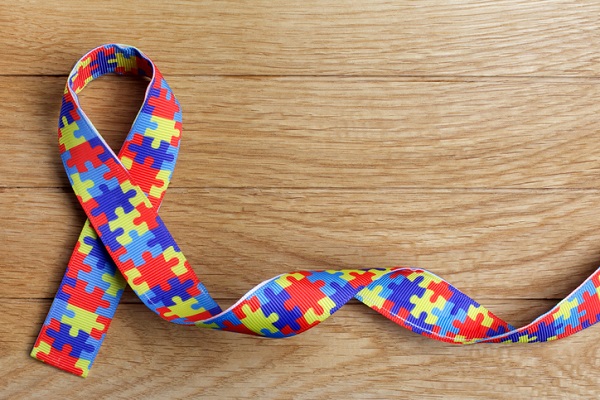Autism, or autism spectrum disorder (ASD), is a complex neurodevelopmental disorder that affects an estimated 1 in 66 children and youth between the ages of 5 and 17 in Canada (“Infographic: Autism Spectrum Disorder,” 2018). While ASD includes a range of conditions which can vary in the specific signs and symptoms involved, it is generally associated with pervasive difficulties with regards to communication and social interaction, and repetitive or restricted behaviours and interests.
While the prevalence of autism has risen significantly since it began being tracked in 2000, experts attribute this rise to an increased awareness of the disorder and increased screening, as well as changes in the diagnostic criteria, rather than any increase in the actual rate of the disorder (Wright, 2017).
Despite advancements in the diagnosis of ASD, however, there are still many blind spots when it comes to autism research, including a lack of research into meeting the needs of adult individuals with ASD (Murphy et al., 2016). If you are interested in a career in counselling, here are some helpful tips when it comes to serving clients who have been diagnosed on the autism spectrum.
Autism Can Manifest with a Variety of Different Signs and Symptoms
Around one third of individuals with autism remain nonverbal, and one third have been assessed with some sort of intellectual disability (“What is Autism,” n.d.). The autism spectrum, however, is quite broad, and also includes many high-functioning individuals with a variety of unique individual needs and challenges.
Some of the signs and symptoms that might appear as part of ASD include: obsessive interest in a particular topic, difficulty breaking from routine, unusual movements such as rocking or flapping arms, and difficulty understanding social cues and interacting with peers (“Diagnosing and Managing Autism,” 2017).
Given this diversity of possible signs and symptoms, counsellors who have studied at counselling therapist schools and who are working with clients on the autism spectrum should try not to rely on any preconceived notions of what challenges might be faced by a particular client, or what accommodations they might require. Each individual on the autism spectrum is unique, and as such, should be approached with fresh eyes and an open attitude.

Individuals with ASD each have their own unique strengths and challenges
Accommodating Clients with ASD after Counsellor Training
When helping clients with ASD, counsellors might want to offer accommodations to ensure that they feel comfortable and safe. Some people with autism, for example, have extreme sensitivities to certain sounds, smells, or lights (“Autism Therapies and Supports,” n.d.), so making accommodations to the space in which your sessions are held can be a good first step. Likewise, some individuals with ASD might prefer to avoid group sessions (Woods, Mahdavi, & Ryan, 2013). In general, counsellors should consult with their clients to ensure a comfortable space and an appropriate approach to their counselling.
Individuals with ASD Might Not Express Their Emotions in a Typical Way
Anyone interested in a pursuing a therapist career should be aware that individuals with ASD might not display or communicate their emotions in a conventional way. This lack of expression, however, should not be taken as a lack of emotion (Woods, Mahdavi, & Ryan, 2013). Individuals affected by ASD might be affected by any number of emotional issues, and in fact, 70% of Americans diagnosed with autism suffer from co-morbid conditions, such as affective disorders, anxiety, and OCD (Lutz, 2015). Counsellors working with clients with ASD should be sensitive to the fact that they might be feeling more than they’re letting on (Woods, Mahdavi, & Ryan, 2013).

Individuals with ASD might not express their emotions in a conventional way
Are you interested in pursuing a career in counselling?
Contact Rhodes Wellness College to learn more about our counsellor training programs.
References
Diagnosing and managing autism spectrum disorder (ASD) (2017, Jan). Retrieved from https://www.apa.org/helpcenter/autism.aspx Infographic: Autism Spectrum Disorder among Children and Youth in Canada 2018 (2018, March 29). Retrieved from https://www.canada.ca/en/public-health/services/publications/diseases-conditions/infographic-autism-spectrum-disorder-children-youth-canada-2018.html
Lutz, A.S.F. (2015, Aug 24). Is Your Child’s Psychiatrist an Autism Expert? Retrieved from https://www.psychologytoday.com/ca/blog/inspectrum/201508/is-your-childs-psychiatrist-autism-expert
Murphy, C. M., Wilson, C. E., Robertson, D. M., Ecker, C., Daly, E. M., Hammond, N., Galanopoulos, A., Dud, I., Murphy, D. G., … McAlonan, G. M. (2016). Autism spectrum disorder in adults: diagnosis, management, and health services development. Neuropsychiatric disease and treatment, 12, 1669-86. doi:10.2147/NDT.S65455
What is Autism (n.d.). Retrieved from https://www.autismspeaks.ca/about-autism/what-is-autism/
Woods, A. G., Mahdavi, E., & Ryan, J. P. (2013). Treating clients with Asperger’s syndrome and autism. Child and adolescent psychiatry and mental health, 7(1), 32. doi:10.1186/1753-2000-7-32
Wright, J. (2017, Mar 2). Autism rates in the United States explained. Retrieved from https://www.spectrumnews.org/news/autism-rates-united-states-explained/










